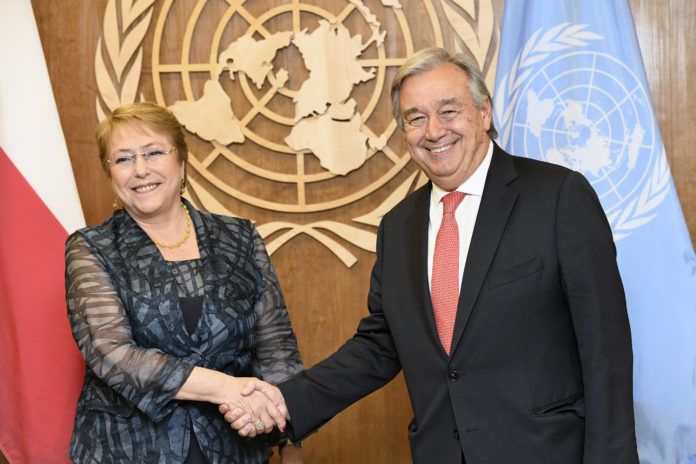On December 10, 1948, the 58 Member States that made up the United Nations General Assembly adopted the Universal Declaration of Human Rights in Paris at the Palais de Chaillot.
And so, every year on this date, the UN commemorates Human Rights Day to honor its defenders "who risk their lives to protect their fellow human beings in the face of rising hatred, racism, intolerance and repression."
In a message published to mark the event, UN Secretary-General António Guterres writes that "for 70 years, the Universal Declaration of Human Rights has shone like a beacon across the world, shining a light on dignity, equality and well-being, and inspiring hope in the darkest places."
The UN chief recalled that the rights proclaimed in the Declaration apply to all, regardless of race, creed, geographical location or any other distinction whatsoever.
Antonio Guterres emphasized that "human rights are universal and eternal. He added that they are "equally indivisible. We cannot choose one right at the expense of another, among civil, political, economic, social and cultural rights."
"The world today is a better place than it was 70 years ago. Michelle Bachelet, High Commissioner for Human Rights.
For her part, the High Commissioner for Human Rights, Michelle Bachelet, recalled that the Universal Declaration of Human Rights was conceived as "a roadmap" to guide the peoples of the world away from conflict and suffering, and to ensure that "relations within societies and between States are sustainable and peaceful".
She added that "the Declaration has inspired many liberation movements and improved access to justice, social protection, economic development and political participation. Wherever its commitments have been respected, it has helped to defend the dignity of millions, avert suffering and lay the foundations for a fairer world".
Michelle Bachelet recently recalled that there has been a lot of progress since the adoption of this declaration, even if "it's hard to believe" seeing all these atrocities on television. "Think back to 1948: how many countries allowed women to vote, for example; how many respected freedom of expression," she said. "
According to the UN's head of human rights, "the struggle for human rights will probably never end, because it's a process in which you move forward, but there will always be people who want to move backwards, whether it's governments or armed groups." "The UN's task is to guarantee and promote the entire human rights system. And I will do what I have to do in this respect", assures Mrs. Bachelet.


